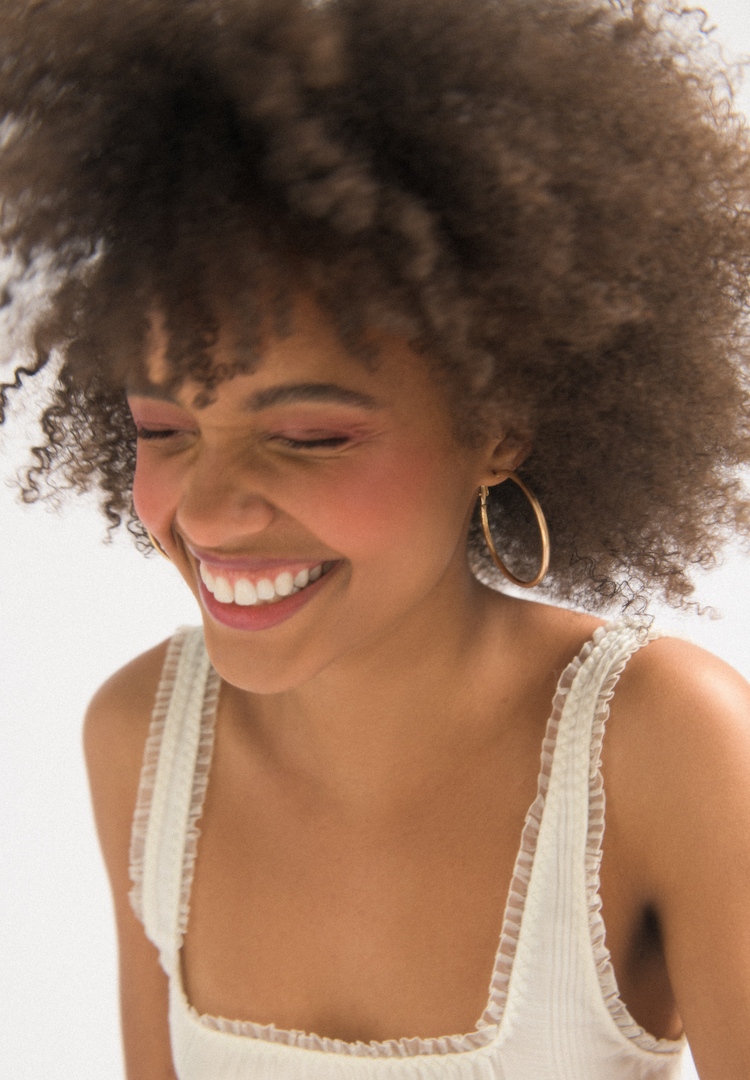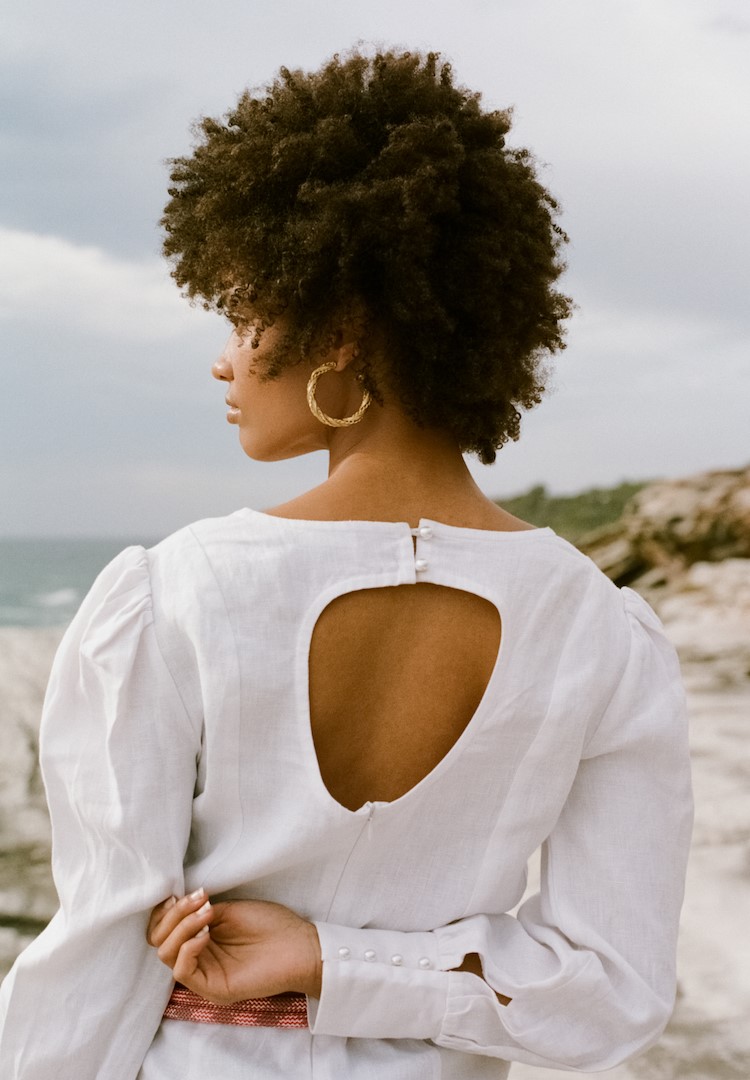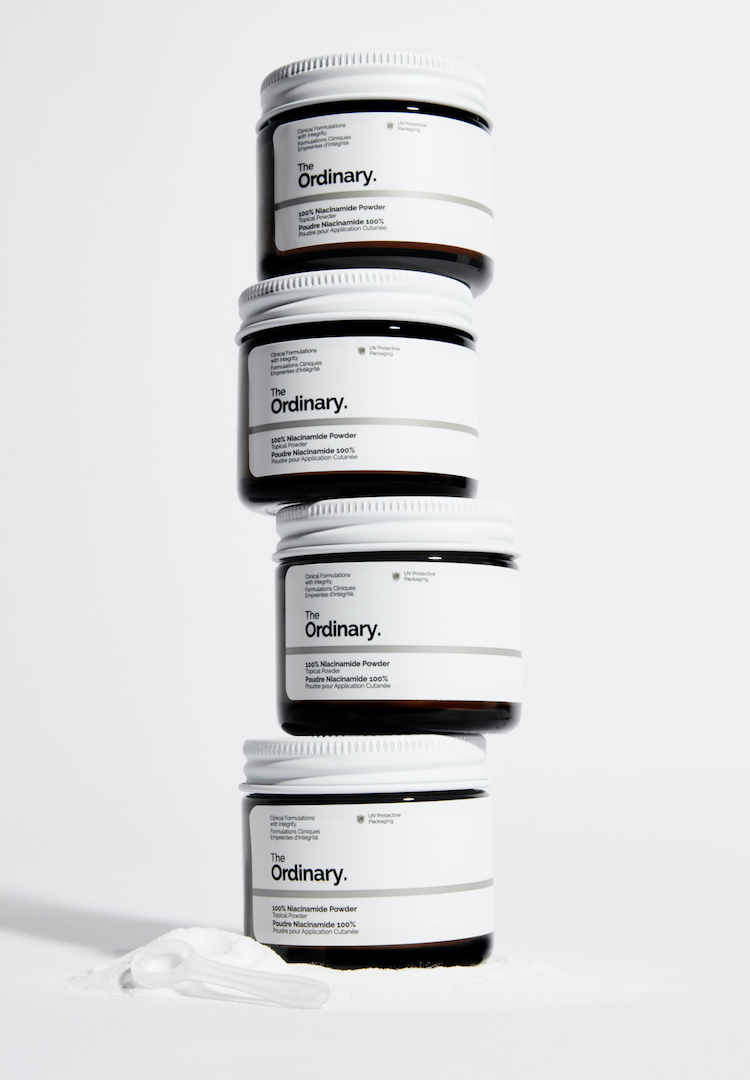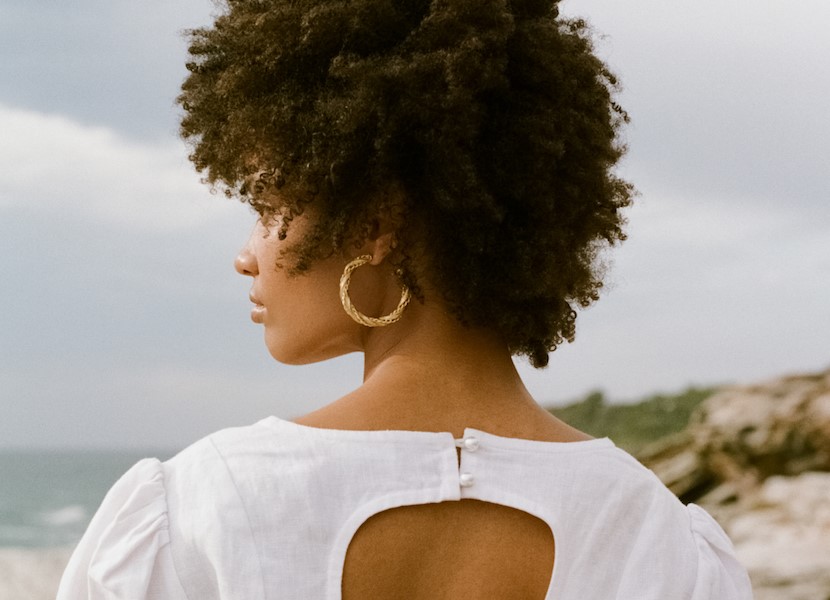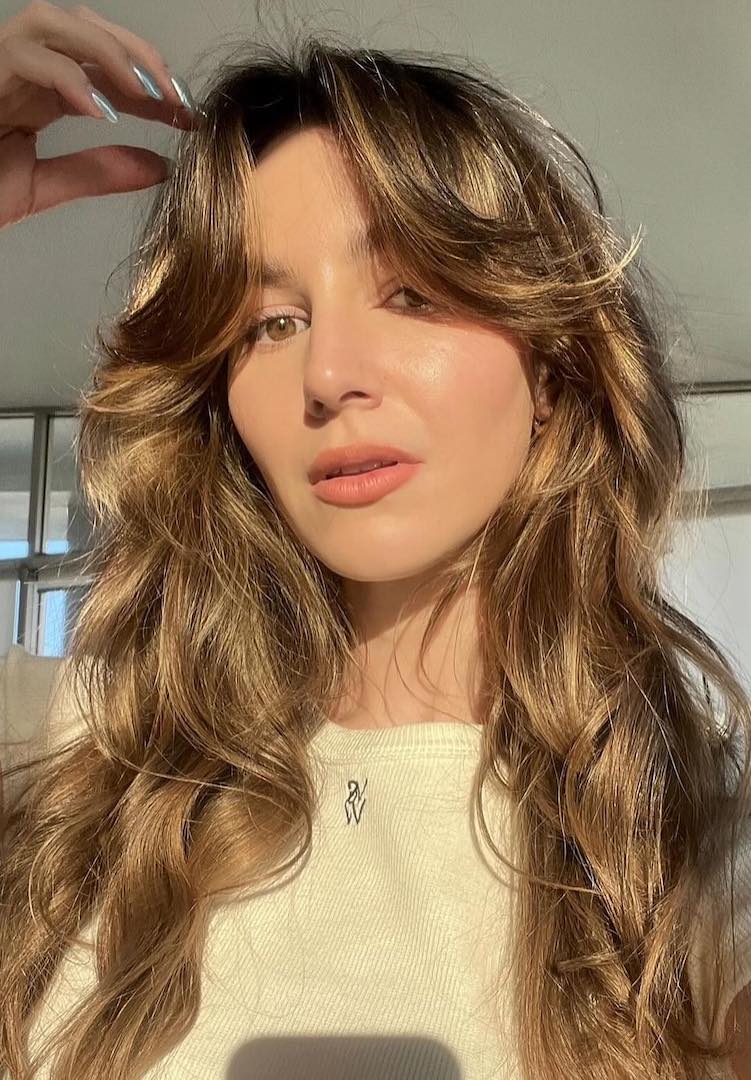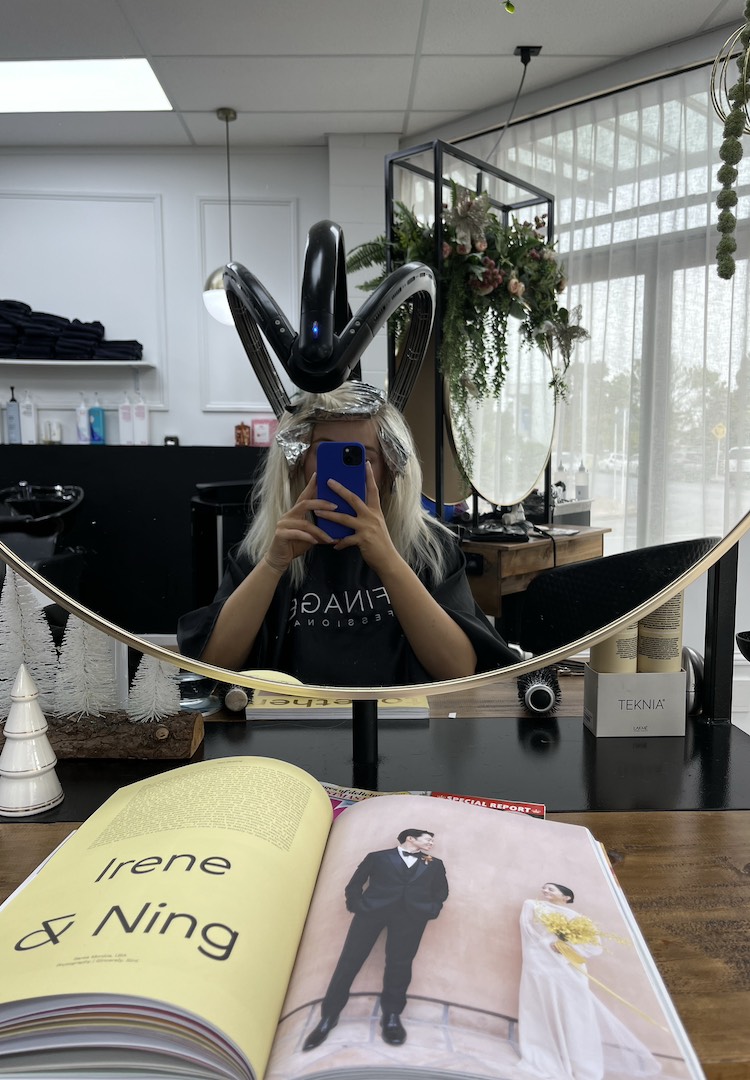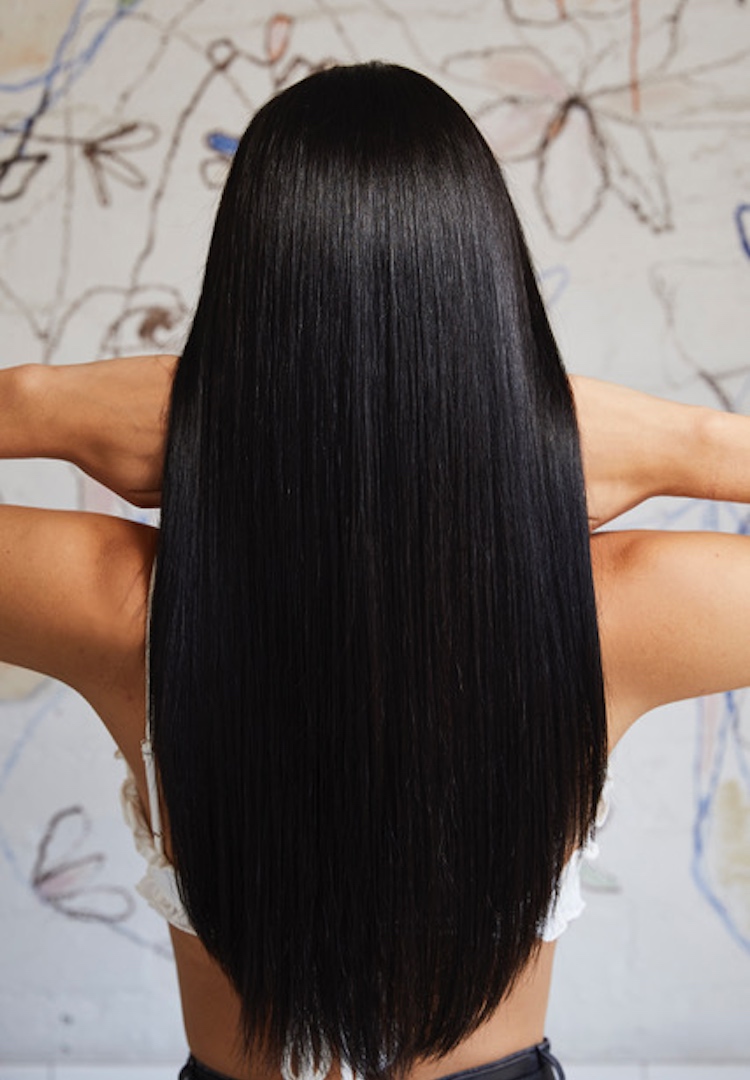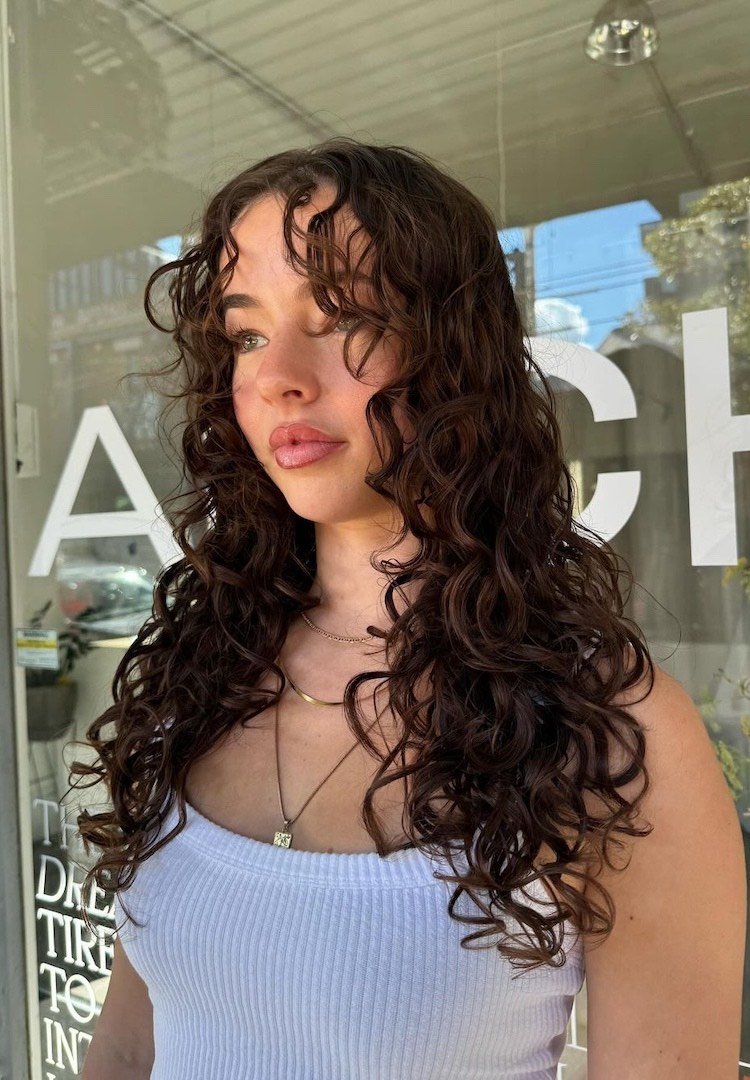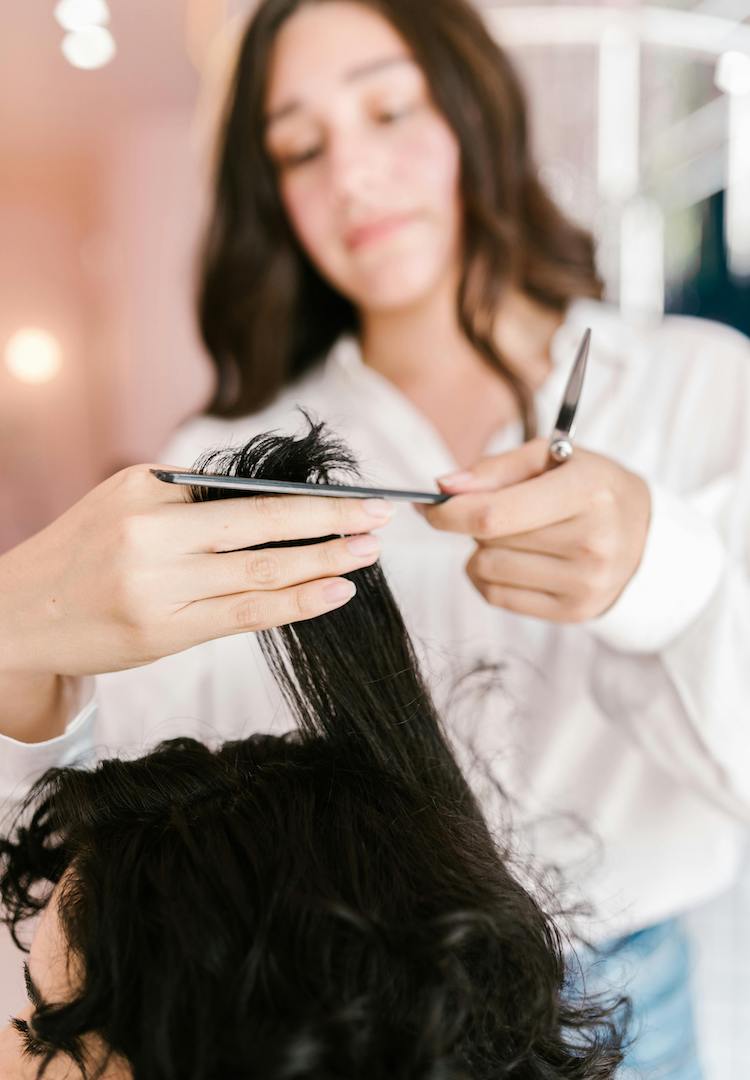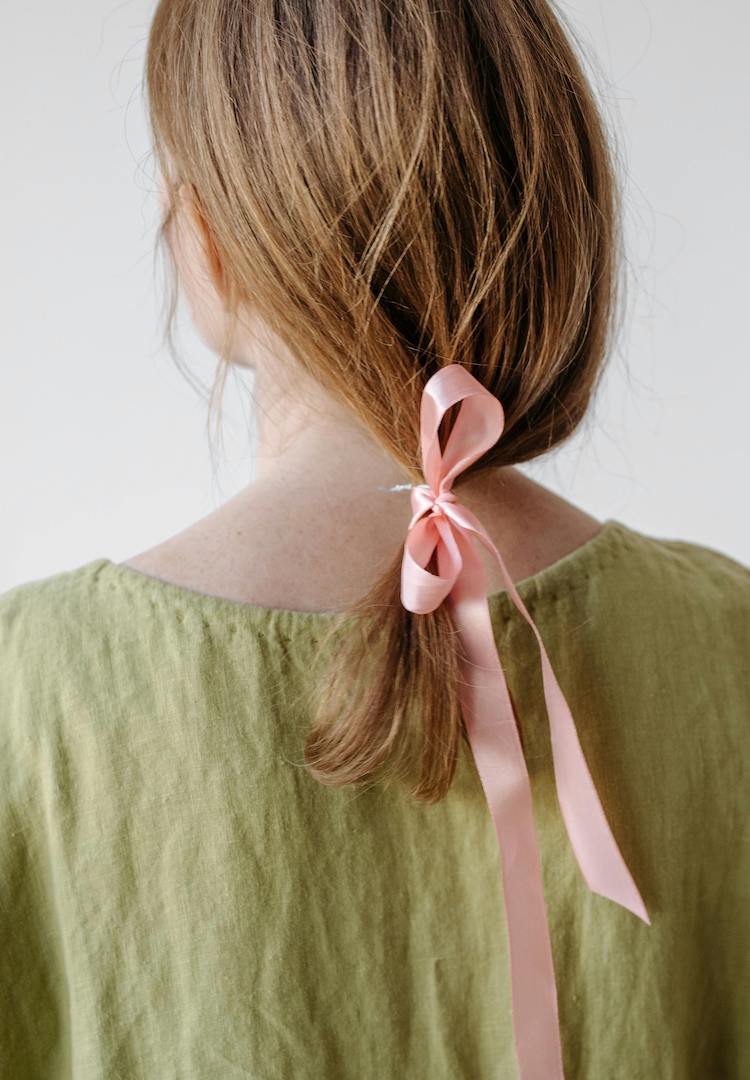A Melbourne creative shares her experience with her afro hair and why the industry needs to change
Image by Kaitlyn Bosnjak
Words by Sally Edwards
“It’s on the hairdresser to have that knowledge and to do the work because that’s their job.”
Last month, we featured Chrissy Zemura’s petition to include afro and textured hair education in TAFE’s Certificate III in Hairdressing. Now, Edwards and Co is backing the cause and, with the help of photographer and model Nina Ryan, the mega-salon is using its platform to create long-lasting change in the at times static hair industry.
Here, Nina gives us a glimpse into what it’s like to be a woman with an afro in Australia and explains why the industry needs to change from the ground up.
Hi Nina! Thanks for talking with me today. Can you tell me a little bit about who you are and what you do?
I grew up near Phillip Island and I live on the Mornington Peninsula, so I’ve had a pretty coastal life. I’ve got a couple of kids and am a freelance photographer who very occasionally moonlights in front of the camera, and I have an afro [laughs].
Why was working with Edwards & Co on this project important to you?
Before seeing the petition, I didn’t realise it wasn’t included [in TAFE training for hairdressers] but I’m 28, I’ve been to multiple hairdressers, it made complete sense. Growing up products for my kind of hair just didn’t exist, especially because I grew up regional and I was just so far from the norm. I thought if this can even slightly push it into the limelight and help get [afro and textured hair education] included then I’m definitely all about it.
View this post on Instagram
Can you tell me more about your relationship with your hair?
My mum’s Caucasian Aussie and my dad’s from South America. As a kid not wanting to have my hair brushed it would get super knotty, so Mum was like, “It’s just easier, we’ll have it short”. Then, when I got to my teenage years, l wanted to grow it out but I just didn’t look after it properly so I ended up getting it cut short again at 17. I grew it out again but as an adult, it was difficult to find a hairdresser who was willing to cut my hair.
Coming from that perspective and then seeing the petition, I was like, “Right, people aren’t learning how to cut or look after this hair”. They don’t want to cut it because they don’t want to do a bad job, which I get. You can’t cut afro hair how you would “normal” hair – you can’t pull it all the way out and trim it because it will just shrink back. I’ve had haircuts where that’s happened and it’s been significantly shorter than anticipated [laughs]. My oldest child is three and he wanted a haircut for his birthday. I was like, “Oh my god, I don’t want him to have the same experience as me!”.
Does he have the same hair type as you?
His is more ringlety. But having to think, “Oh, I better find a hairdresser and contact them before and make sure they’re comfortable” – it’s just crazy that I have to do that in the first place. But that was another reason for going into this: to help change [hair education] moving forward so that we don’t have another generation of hairdressers who feel uncomfortable with afro hair.
What are your biggest gripes with the industry?
For lack of a better term, it’s pretty whitewashed. My husband used to go to a hairdresser where all the posters were mostly the White guy with the American Crew haircut and in most salons, the products are all directed at straight or slightly wavy hair. I know there’s a minority with afro and textured hair but we still exist. It’s that lack of representation, and the hesitation to even learn. Hairdresser Natalia [Humphrey] said it really well, she said: “It’s our responsibility to know how to cut all types of hair”.
How about media representation? Do you have any thoughts on this?
From a photography and modelling point of view, definitely. I’ve been on sets where the stylist has been like, “We’ll just leave your hair like this”, and it’s like, are you thinking that because it looks better this way or do you just not know what to do with it? It’s also the kind of language around natural hair. You look at products and it’s like ‘How to tame your curls’ and ‘How to reduce frizz’ and all of it’s perpetuated as though having super curly hair is a negative thing. It’s seen as a challenge when it’s really not.
There are all these negative connotations around having natural hair like its nappy or its ratty or its unprofessional, and that it’s low maintenance, which I find really bizarre. I have to comb this every day and put multiple products in it to have it look like this [laughs]. We’re making changes now but a lot of things have just “always been that way”. So, you’re really having to fight for it.
It’s a systemic problem, right?
I had a look at the Cert III work [at TAFE] and you can do an elective on moustache shaping and beard maintenance and how to do all different types of French braids and long-hair updos. And then, there’s an elective on how to use a protein treatment to relax curly hair. If you’re not learning about the science of curly and afro-textured hair, how can then you learn how to relax it? It doesn’t make any sense. You can learn how to make my hair look really White but not how to [make it] look like my hair natural.
What do you think people in the hair industry are doing well?
In terms of curly hair, I’ve seen loads of dry-cutting courses popping up, which is awesome and bigger brands are clueing on to the fact that there is a need for curly-hair products. Hairdressers are talented people and they’ve come a lot further in respecting actual hair itself. There’s definitely some good, I don’t think hairdressers are evil [laughs].
What would you like others with curly hair to know?
Find a hairdresser that you know will look after your hair and don’t feel pressured to straighten it because you think it’s going to make you a better version of yourself or to stand out less. You have to get to that point in your life where you are like “Okay, you know what, my hair is something to be celebrated, it’s not to be cursed upon”. It requires a little bit more work and sometimes random people will want to touch it, but you can also just tell them no [laughs].
Anything else?
The onus shouldn’t be on the client to be like “Okay, here’s how you cut my hair”, it’s on the hairdresser to have that knowledge and to do the work because that’s their job. Okay, you’re not getting taught this but maybe during your education, you can ask, “Why aren’t we learning this?” or “I’ve got questions about this”. The education setting is the best place to ask questions.
Don’t be scared of Afro hair even if it seems completely different to anything you’ve ever experienced before, it’s just hair, it’s not a big deal [laughs]. Plus, it’s probably the only time when it’s acceptable to put your hands in someone’s afro. So, if you really want to know what it feels like, just be a hairdresser!

